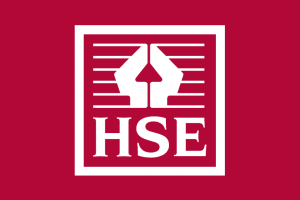Burger me! Hunt is CEO of Havas Lynx

DAVID Hunt was once the fresh-faced work experience kid staff at Manchester PR company Havas sent out to get burgers from Burger King and fries from McDonald’s.
But now aged 36 he’s got the world at his feet – a look favouring movie idol Johnnie Depp – and a role as chief executive of £20m turnover Havas Lynx – the most significant in-house healthcare communications agency outside of New York.
It seems the moment he graduated the stars were aligned for Hunt – although the first role he got was to paint the office for the company.
He launched the digital team in 2001/2 before becoming a digital director when Stuart Wilson, who established the business in 1986, completed a management buyout and assembled a new team.
“In 2006 to 2008 we went from employing 30 people to about 100 and continued to grow,” he explained. “We won global awards for the healthcare innovations.
“We then caught the attention of Havas and other global communications networks.
“We made the decision to join Havas in 2012, so we went from being Creative Lynx to Havas Lynx.
“This was critical because it took us from being a UK agency to being a global agency.
“It gave us a global footprint and it also opened the doors to global opportunities. Havas has about 18,000 employees worldwide.”
Its divisions include creative and media in addition to healthcare, which has 4,000 people, 250 of which are based in Manchester.
Hunt became CEO in 2013 and is proud of the contribution Havas Lynx is making to the regional economy.
“We’ve got a turnover in excess of £20m so we bring about £12m into the local economy (60% of Havas Lynx’s business is global), which I’m really proud of.
“By the end of this year, we’ll have taken on just short of 100 graduates over a three-year period, from local universities as well.
“We’re grateful to Manchester for the community we have. Since they acquired us Havas have recognised the strength of the creative digital community in the North West, which is second to none.
“As a result Havas has invested further into the Manchester by establishing Havas Media, which is now a media partner for the BBC, Havas PR, which works with people like Pets at Home, and Havas people which is in recruitment.”
Those organisations are what have inspired the establishment of Havas Village Manchester on Princess Street where there about 350 staff based across two buildings.
“What’s also important is we beat London,” continued Hunt, with that Depp-like glint in his eye. “The Havas global strategy is to build villages where they’re headquartered. There’s New York, and the next one is intended to be London, but we got their first, which is cool for the city.”
Hunt says it’s been a great few years. But what exactly does a healthcare communications agency do?
“We look at opportunities for creative and digital people to play a role in partnering with physicians to improve patient outcomes, recognising that what the health service tends to provide is pillow treatment,” said Hunt.
“One of the most important things that’s often ignored is the principle of subjective wellbeing.
“It’s frightening some of the things which take place in the health space – where, if a woman is diagnosed with ovarian cancer, she’s likely to be put in the same waiting room as someone who’s pregnant. How in today’s world is that ever possible?
“Our vision as a business is very simple. If we can improve patient outcomes, we can make people get better, quicker for longer and our lives will be commercially successful.”
Hunt said that half of what Havas Lynx does is to engage with physicians and to try to create services which support them with their patients, – possibly through a social campaign or a mobile service.
“We work in the area of Hepatitis C,” said Hunt. “Historically, the treatment is worse than the disease. So if you’re unfortunate enough to suffer from it, you can lead a relatively normal life.
“The treatment takes about a year and the side effects are significantly worse than the chemo therapy. Once you’ve done that, you’ve only got a one in two change of being successful.
“There is now the emergence of a new type of treatment where there is a cure rate in excess of 90%. It only takes 12 weeks and there are no side effects.
“The issue is that none of the patients know that, so these patients are living with that condition completely unaware there’s a brand new treatment available. So our job is to make it more publicly aware.”
Another example work Havas did on the skin complaint psoriasis.
“We weren’t sure that GPs were aware of the emotional and psychological impact of the condition,” said Hunt. “It’s considered to be much more of a physical condition.
“What tends to happen is that patients who are moderate to severe can get trapped in a cycle of going to see their GP to get different treatments before giving up.
“Dermatologists can prescribe more potent treatments, but you have to get referred from a GP first.
“Our campaign was the first in the world – the first ever social media campaign – called Psoriasis360.
“We created a Facebook community for patients suffering from psoriasis to talk about their condition. Every so often one patient would go into the community and say ‘make an appointment to see your GP, and get referred to a dermatologist, there are better outcomes out there’.
“The campaign had more than 100,000 interactions within a very small time frame and empowered patients.”







